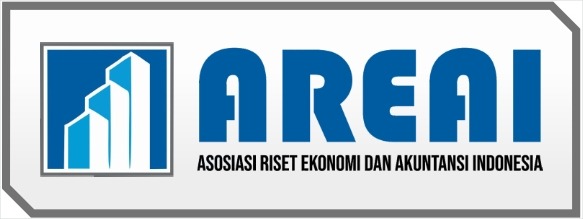Reforming Corporate Accounting through Sustainable Finance: Insights on Green Bonds, ESG Disclosure, and Circular Economy Integration
DOI:
https://doi.org/10.61194/ijat.v2i3.649Keywords:
Sustainable Finance, ESG Disclosure, Green Bonds, Sustainability Accounting, Climate Risk Reporting, Biodiversity Accounting, Circular EconomyAbstract
This narrative review explores the evolving integration of sustainable finance within accounting frameworks, focusing on green bonds, ESG disclosure, circular economy, and climate-related financial reporting. The study aims to understand how accounting practices are adapting to sustainability imperatives and identify critical trends, challenges, and strategies. Literature was collected from Scopus and Google Scholar using targeted keywords and Boolean operators. Peer-reviewed studies were included based on their relevance to sustainable accounting and financial governance. Findings reveal that green bonds significantly enhance corporate green innovation, while circular economy models influence cost structures and promote transparent sustainability reporting. Biodiversity accounting is emerging as a vital tool for integrating ecological risk into ESG frameworks. Moreover, financial institutions are improving climate risk disclosures through digitalization and strengthened governance. These findings challenge traditional accounting paradigms and emphasize the need for reform that incorporates long-term ecological and social impacts. The review highlights systemic barriers, such as inconsistent regulations and limited institutional capacity, and proposes digital transformation and global standardization as key solutions. It concludes that accounting must evolve to support environmental responsibility and long-term value creation. Future research should explore the financial impact of ESG investments and the scalability of digital tools in sustainability reporting.
References
Adhariani, D. (2024). Surplus Indonesia: Tackling food waste through app. Emerald Emerging Markets Case Studies, 14(4), 1-25. https://doi.org/10.1108/eemcs-04-2024-0190 DOI: https://doi.org/10.1108/EEMCS-04-2024-0190
Aguiar, T., Haque, S., & McCann, L. (2024). Mapping accounting literature on climate finance: Identifying research gaps and reflections on future research. Accounting Research Journal, 37(3), 249-269. https://doi.org/10.1108/arj-06-2023-0162 DOI: https://doi.org/10.1108/ARJ-06-2023-0162
Antoncic, M. (2019). Why sustainability? Because risk evolves and risk management should too. RMFI, 12(3), 206. https://doi.org/10.69554/ngci9028 DOI: https://doi.org/10.69554/NGCI9028
Chatpibal, M., Chaiyasoonthorn, W., & Chaveesuk, S. (2023). Driving financial results is not the only priority! An exploration of the future role of chief financial officer: A grounded theory approach. Meditari Accountancy Research, 32(3), 857-887. https://doi.org/10.1108/medar-02-2023-1929 DOI: https://doi.org/10.1108/MEDAR-02-2023-1929
Dimmelmeier, A. (2023). Expanding the politics of measurement in sustainable finance: Reconceptualizing environmental, social and governance information as infrastructure. Environment and Planning C: Politics and Space, 42(5), 761-781. https://doi.org/10.1177/23996544231209149 DOI: https://doi.org/10.1177/23996544231209149
Gangi, F., Mustilli, M., Daniele, L., & Coscia, M. (2021). The sustainable development of the aerospace industry: Drivers and impact of corporate environmental responsibility. Business Strategy and the Environment, 31(1), 218-235. https://doi.org/10.1002/bse.2883 DOI: https://doi.org/10.1002/bse.2883
Huang, H., Xiong, K., Li, Y., Wang, Q., & Yan, J. (2024). Green finance and value realization of forest ecological products in karst areas: A mediating-effect perspective based on the level of karst desertification. Forests, 15(12), 2189. https://doi.org/10.3390/f15122189 DOI: https://doi.org/10.3390/f15122189
Huang, S., Chiu, A., Chao, P., & Wang, N. (2019). The application of material flow cost accounting in waste reduction. Sustainability, 11(5), 1270. https://doi.org/10.3390/su11051270 DOI: https://doi.org/10.3390/su11051270
Jordão, R., Almeida, V., & Novas, J. (2022). Intellectual capital, sustainable economic and financial performance and value creation in emerging markets: The case of Brazil. The Bottom Line: Managing Library Finances, 35(1), 1-22. https://doi.org/10.1108/bl-11-2021-0103 DOI: https://doi.org/10.1108/BL-11-2021-0103
Kopnina, H., Zhang, R., Anthony, S., Hassan, A., & Maroun, W. (2024). The inclusion of biodiversity into environmental, social, and governance (ESG) framework: A strategic integration of ecocentric extinction accounting. Journal of Environmental Management, 351, 119808. https://doi.org/10.1016/j.jenvman.2023.119808 DOI: https://doi.org/10.1016/j.jenvman.2023.119808
Lagoarde-Ségot, T. (2020). Financing the sustainable development goals. Sustainability, 12(7), 2775. https://doi.org/10.3390/su12072775 DOI: https://doi.org/10.3390/su12072775
Lauesen, L. (2019). Sustainable investment evaluation by means of life cycle assessment. Social Responsibility Journal, 15(3), 347-364. https://doi.org/10.1108/srj-03-2018-0054 DOI: https://doi.org/10.1108/SRJ-03-2018-0054
Li, S. (2024). Construction of China’s carbon financial accounting system from the perspective of sustainable development. Problemy Ekorozwoju, 19(1), 213-220. https://doi.org/10.35784/preko.5758 DOI: https://doi.org/10.35784/preko.5758
Li, Y., & Wang, J. (2021). Evaluating the impact of information system quality on continuance intention toward cloud financial information system. Frontiers in Psychology, 12. https://doi.org/10.3389/fpsyg.2021.713353 DOI: https://doi.org/10.3389/fpsyg.2021.713353
Marco‐Fondevila, M., Benito-Bentué, D., & Scarpellini, S. (2023). “Old” financial instruments in “new” circular models: Applied environmental accounting in the banking sector for reporting in a circular economy. Revista De Contabilidad, 26(Special), 34-45. https://doi.org/10.6018/rcsar.576251 DOI: https://doi.org/10.6018/rcsar.576251
Meo, M., & Staniewski, M. (2024). Green bonds and sustainable finance. https://doi.org/10.4324/9781032686844 DOI: https://doi.org/10.4324/9781032686844
Morrison, E., Adu, D., & Guo, Y. (2024). Executive compensation, sustainable business practices and firm performance: A systematic literature review and future research agenda. Journal of Accounting Literature. https://doi.org/10.1108/jal-03-2023-0040 DOI: https://doi.org/10.1108/JAL-03-2023-0040
Oyewo, B., Tawiah, V., & Hussain, S. (2022). Drivers of environmental and social sustainability accounting practices in Nigeria: A corporate governance perspective. Corporate Governance, 23(2), 397-421. https://doi.org/10.1108/cg-09-2021-0336 DOI: https://doi.org/10.1108/CG-09-2021-0336
Ramayanti, R., Rachmawati, N., Setiawan, R., & Azhar, Z. (2024). Driving sustainable financial management: An investigation of factors influencing the use of digital technologies by MSMEs. Journal of Governance and Regulation, 13(2), 76-85. https://doi.org/10.22495/jgrv13i2art7 DOI: https://doi.org/10.22495/jgrv13i2art7
Tettamanzi, P., Venturini, G., & Murgolo, M. (2022). Sustainability and financial accounting: A critical review on the ESG dynamics. Environmental Science and Pollution Research, 29(11), 16758-16761. https://doi.org/10.1007/s11356-022-18596-2 DOI: https://doi.org/10.1007/s11356-022-18596-2
Van, H., Afifa, M., & Saleh, I. (2024). Accounting information systems and organizational performance in the cloud computing era: Evidence from SMEs. Sustainability Accounting, Management and Policy Journal. https://doi.org/10.1108/sampj-01-2024-0044 DOI: https://doi.org/10.1108/SAMPJ-01-2024-0044
Yagi, M., & Kokubu, K. (2020). A framework of sustainable consumption and production from the production perspective: Application to Thailand and Vietnam. Journal of Cleaner Production, 276, 124160. https://doi.org/10.1016/j.jclepro.2020.124160 DOI: https://doi.org/10.1016/j.jclepro.2020.124160
Downloads
Published
How to Cite
Issue
Section
License
Copyright (c) 2024 Fifi Nurafifah Ibrahim

This work is licensed under a Creative Commons Attribution 4.0 International License.






